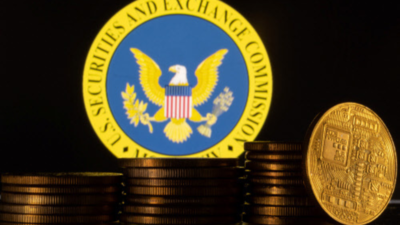
After shaking the foundation of traditional finance and making central banks give a war cry, the cryptocurrency world faces one of its most critical moments as it moves forward nonchalantly. With over a trillion dollars in market cap and the bitcoin keeping in the range of $26,000, it’s not a doom or gloom story for digital assets. But there are some upheavals, nevertheless!
The United States Securities and Exchange Commission (SEC) has filed lawsuits against Binance and Coinbase, the two biggest crypto exchanges in the world. The American capital market regulator has charged them with operating as exchanges, broker-dealers, and clearing houses without any licenses. Binance was also accused of commingling customers’ funds and running two unregistered securities – BNB and BUSD. BNB is the native coin of the Binance network as BTC is to bitcoin, and BUSD is the stablecoin operated by a blockchain company Pexos under the license of Binance. BUSD, with roughly $16 billion in outstanding, was forced to close by the US regulators on the charges that it is unregistered security.
The enforcement action being taken by the US regulator is to force crypto exchanges and crypto tokens to get themselves registered with the SEC and follow the rulebook prescribed for securities. The SEC argues that crypto exchanges can’t claim that no law applies to their businesses. It further claims that many crypto exchanges are taking calculated risks in which the cost of enforcement is included. Given this, the SEC is in no mood to let crypto exchanges operate without proper licenses and submit to the existing laws for securities and capital markets.
Following the collapse of FTX in November, which wiped out about $10 billion of investors’ money, the US regulators have taken a tough stance against crypto exchanges and their services. In the first such enforcement action, SEC forced a US-based crypto exchange to sign a $50 million settlement deal after charging it with offering unregistered securities in the form of staking services. In a recent interview, SEC chair Gary Gensler claimed the crypto market poses the same scenario as before the federal securities laws came into being in 1933. Scammers are cheating investors who end up in queues outside bankruptcy courts. There is no protection for investors and no legal recourse available to them. It can’t be allowed to continue.
What Gensler is doing now, he should have done much before big collapses and failures rocked the crypto world. But businesses can’t be allowed to be dictated by the regulators. It must have free and autonomous space to operate. In other words, businesses need well-defined perimeters to operate freely. In today’s context, what the SEC claims is subject to how the courts view them. The courts may dismiss SEC’s enforcement, calling them an overreach, something that’s not within its power or jurisdiction. That’s where there is a need for a clear law that governs the activities in the arena of cryptocurrencies.
A similar situation arose in India when the Reserve Bank of India, through a circular in 2018, asked the banks not to process crypto transactions. Its overreach was overruled by the Supreme Court of India in 2020. What next? Crypto businesses still does not have access to full range of banking services in India. Recently, Twitter founder Jack Dorsey claimed in an interview that its officials were threatened with raids and jail terms if they did not act in a particular manner, removing posts that the government viewed objectionable. In the same breadth, Dorsey, a big-time Bitcoin maximalist, questioned India’s democracy.
In its lawsuit, SEC requested the court to free the assets of Binance.US, an affiliate of Binance. But the court did not agree with the SEC, saying it would harm the customers and the digital assets market. It asked SEC and Binance to engage in talks and find a solution, which they did. Binance.US has laid off many employees as it prepares for lengthy and costly litigation with SEC. Coinbase, an American company, got a license in Bermuda recently and is in the process of setting up bases in the UK and UAE. It’s moving out of the US likes scores of other crypto firms. Coinbase CEO, Brian Armstrong, has claimed that the US will lose a significant share of the global financial market to crypto-friendly jurisdictions such as Dubai, Singapore, and Hong Kong. (IPA Service)
The post US SEC’s Lawsuits Against Binance And Coinbase Hit Cryptocurrency Market first appeared on IPA Newspack.


